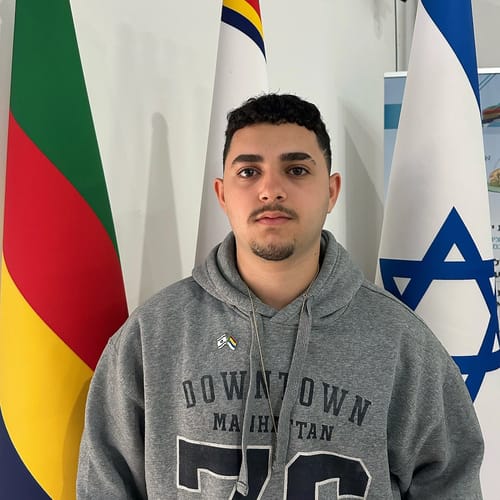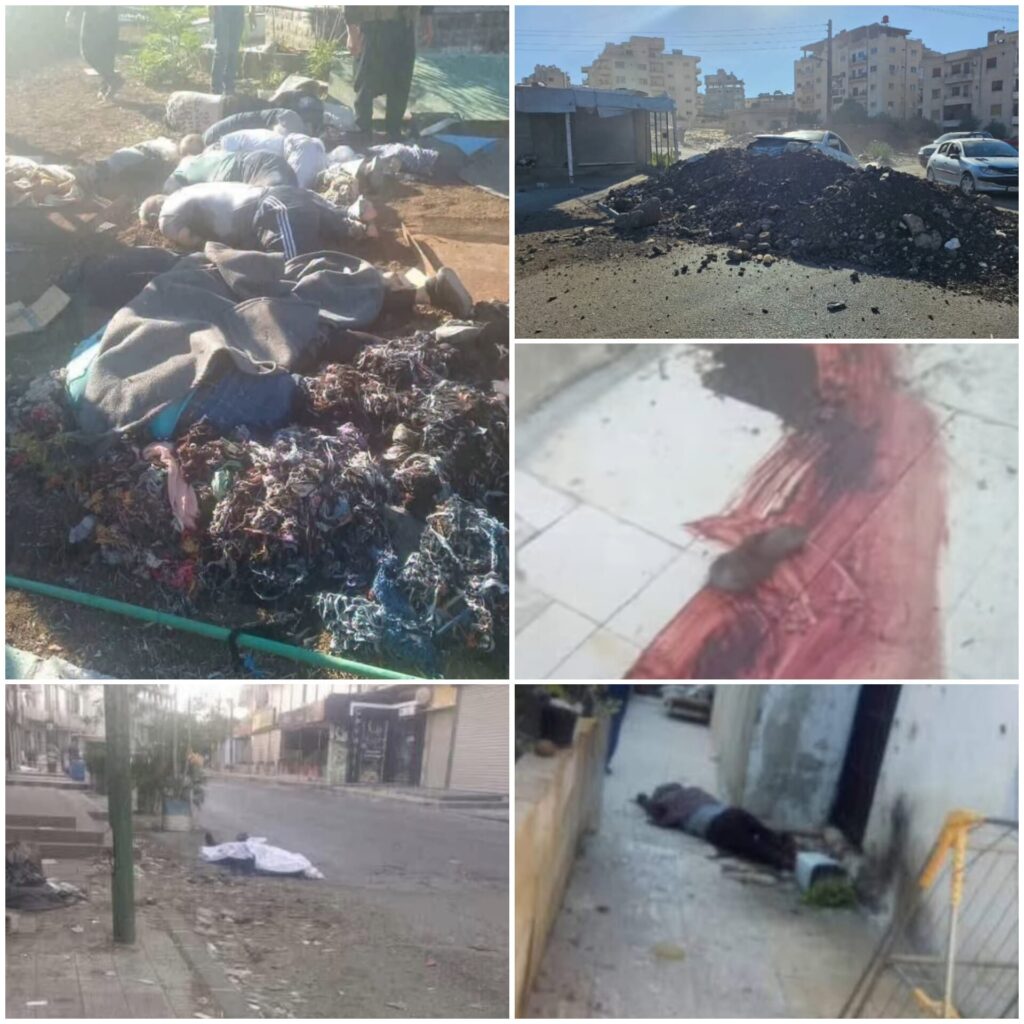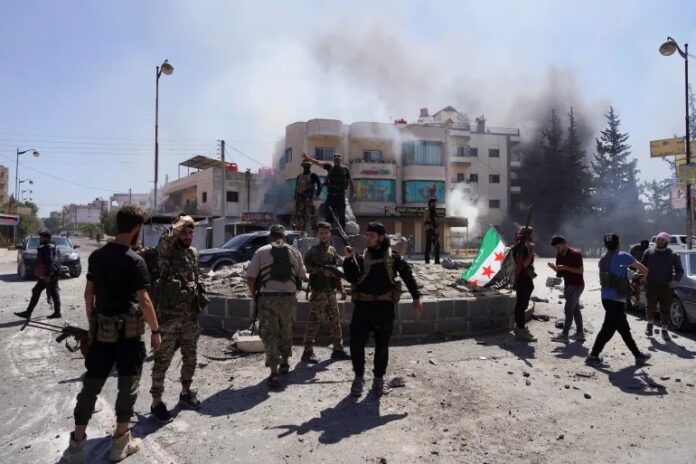A Crisis Unfolding: The Druze in Syria Need the World’s Attention
In the heart of southern Syria, the Druze community is under siege. Towns like As-Suwayda and Jaramana, long known for their tight-knit, peaceful communities, are now gripped by violence, fear, and humanitarian collapse. Armed militias, many with radical ideologies, are spreading terror, through kidnappings, torture, and public executions. As the global community turns its eyes elsewhere, the voices of the Druze are being drowned in silence.

Among those refusing to stay quiet is Marwan Jaber, a 16-year-old Israeli-Druze activist and social media star with a powerful message. With nearly 230,000 followers on Instagram, Jaber is using his platform to spotlight the suffering of Druze communities across the Syrian border, and he’s calling for immediate action.
Social Links Marwan Jaber: Instagram | TikTok | Facebook | X-Twitter
The Deep Connection Between Israel and the Druze Community
The bond between the Druze community and the State of Israel is both historic and profound. Unlike many other minorities in the region, Druze Israelis have fully integrated into Israeli society while maintaining their unique identity and traditions. They serve with distinction in the Israel Defense Forces (IDF), hold key roles in government, healthcare, education, and law enforcement, and are widely respected for their loyalty and contributions.
This alliance is not merely symbolic, it’s rooted in decades of mutual respect, shared values, and national partnership. Druze and Jewish Israelis stand together during times of conflict, celebration, and mourning. Their connection is one of blood, sacrifice, and collective purpose.
It’s precisely this closeness that makes the suffering of the Druze population in Syria especially painful for many Israeli families. The brutal persecution faced by Druze communities in places like As-Suwayda, often at the hands of radical factions such as those led by Abu Mohammad al-Julani has sparked concern, anger, and empathy within Israel. For Israeli Druze and their Jewish neighbors alike, this is not just a humanitarian crisis; it’s a deeply personal matter.
When Druze civilians are targeted, kidnapped, or murdered across the border, it strikes at the heart of a shared identity. That’s why many in Israel believe their government, and the broader international community, must take a stronger stance in supporting the Syrian Druze. Their safety and dignity are not just regional concerns; they represent a moral responsibility deeply felt by the people of Israel.
A Firsthand Perspective on Syria’s Evolving Crisis
Syria remains one of the most volatile and complex regions in the Middle East, with consequences that extend far beyond its borders. For Israel and its citizens, the humanitarian crisis unfolding in southern Syria , especially in Druze-majority areas like As-Suwayda, carries deep emotional and cultural significance.
To better understand the current situation and its wider impact, WilNews spoke with Marwan Jaber, a young and passionate Israeli Druze advocacy figure. Marwan, who maintains strong family ties in Syria, has been actively raising awareness and supporting humanitarian causes throughout the recent waves of violence.
In this exclusive interview, he offers a rare and insightful perspective on the challenges facing the Druze community, the role Israel could play, and the growing connection between Druze identity and regional stability. His views provide a human lens on a crisis that is too often discussed only in political or military terms.
“They Are Not Asking for Pity, They’re Asking for Justice”
In an exclusive interview with Wil-News, Marwan Jaber shared detailed insights about the Druze crisis in Syria:
- What is the current humanitarian and security situation in Druze-majority areas like AsSuwayda and Jaramana?The situation is extremely difficult. In southern Syria especially in As-Suwayda, the Druze community is under attack by armed militias, some with radical Islamist ideologies. There have been kidnappings, torture, looting of homes, and the spread of horrifying videos. While Jaramana is relatively calmer, the sense of fear and instability is still very present.
- What forms of support are the Druze in Syria asking for right now? They’re asking for three main things:
- Humanitarian aid: food, medicine, and basic protection for civilians.
- Media exposure: to make sure the world knows what’s happening.
- Diplomatic pressure: on the Assad regime and on the radical militias committing the crimes.
- Has Israel provided any direct or indirect support to the Druze in Syria in recent years? Not publicly or officially. There were some reports in previous years of humanitarian assistance through the Golan border, mainly during other phases of the Syrian war. Today, if support exists, it is very limited and discreet.
- What role should the Israeli government play in response to the crisis?Israel cannot stand on the sidelines. The Druze in Syria are our brothers and sisters. Israel should:
- Raise this issue on the international stage.
- Apply pressure on those enabling the violence.
- Support humanitarian channels, even quietly, behind the scenes if needed.
- What can Israeli citizens do to support the Druze across the border?
- Raise awareness: share their stories, speak out on social media.
- Donate: support organizations working with Syrian refugees or humanitarian causes.
- Speak up: urge elected officials to take action.
- Stand united: especially between Jews and Druze in Israel, to show strength and solidarity.
- How would you describe the relationship between Jews and Druze in Israel today? It’s deep and meaningful, but not perfect. There’s mutual respect and cooperation in the army, government, and society, but more understanding, empathy, and honest dialogue are needed, especially when one side is in crisis.
- Is the Druze community in Israel supporting their counterparts in Syria?Yes, especially young Druze. Many are raising awareness, sharing information, and expressing solidarity. But because of political sensitivities, some people are afraid to speak publicly. That silence is not indifference, it’s caution.
- Do you feel your advocacy work for Israel is helping shape how Druze in Syria view Israel?Yes. I’ve received private messages from Druze in Syria saying, “We see you,” or “You’re giving us a voice.” That strengthens me and shows that our voice here can make a difference even across borders.
- Is Druze identity in Syria becoming stronger as national Syrian identity weakens? Absolutely. When a country breaks apart, people turn to the identity that feels safest. For the Druze, it’s about survival, but also about rebuilding a community that stands on its values and unity.
- Do Druze in Syria see Israel as a source of democracy or stability in the region? More than before. For years, they were taught to fear or hate Israel. But now, especially among younger generations, there’s growing awareness that Israel is a strong, democratic country that could be a future ally or at least a model of stability.
- Should Israel publicly acknowledge the suffering of Syria’s Druze, as it has in other humanitarian crises?Yes, 100%. Just like Israel spoke out for Ukraine or for victims of natural disasters, it should also stand up for the Druze, because this is a human tragedy, not just a political issue.
- How do you personally balance supporting Israel and caring for Druze in a country at war with it? To me, there’s no contradiction. I’m proud to represent Israel. But I’m also proud of my Druze identity. True advocacy isn’t just about politics, it’s about standing up for justice, humanity, and truth.
- Are the Druze in Syria facing an existential threat today? Yes, without a doubt. They are surround, unarm, and vulnerable. If the world keeps ignoring them, the consequences could be devastating.
- What is the most important message you want the global community and the Israeli public to understand? The Druze in Syria are not asking for pity, they are asking for justice. Silence in moments like this is a choice. You can either be on the side of those who help or those who watch from a distance. This is the moment to choose.

A Call for Unity and Advocacy
The connection between Jews and Druze in Israel remains strong. Druze citizens serve in the military and government, and many are speaking out in support of their Syrian counterparts. However, due to political sensitivities, some are afraid to speak publicly.
Marwan Jaber continues to receive messages from Druze in Syria thanking him for using his voice. “They tell me, ‘We see you. You’re giving us hope.’ That’s why I do what I do.”
He believes that now is the time for global solidarity, especially from Israeli citizens and the international community. “You can either stand with those who help or be a bystander,” Marwan says. “This is a moment to choose.”
The violence, reportedly led by forces under Abu Mohammad al-Julani, has become systematic and brutal. Reports indicate targeted killings and the silencing of anyone who resists. For the Druze, this is not just a humanitarian crisis, it’s an existential threat.
“History will remember those who stood in silence, and those who stood up. The time to choose is now.”
Related Articles: Who the Druze Are and Why is Israel Attacking Syria?

